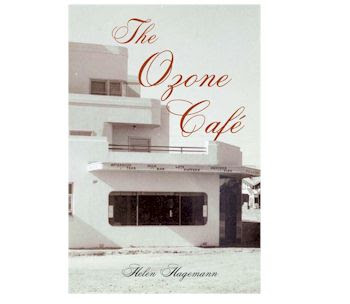Like the old catchphrase, 'what comes first the chicken or the egg?' - poetry also has this dilemma for the female poet. To establish her identity in her work it is a case of what comes first, language or voice? In terms of language she must work within the confines of a male-loaded language, e.g. chairman, mankind, brotherhood, freshman, etc. These distinctive features are predominately sexist. Dwight Bolinger explains that if you compare 'bachelor' with the terms spinster & old maid, 'bachelor' has positive connotations. Old maid has the metaphorical meaning of shriveled and unwanted. Thorne & Henley write: 'Language helps enact and transmit every type of inequality, including that between the sexes: it is part of the "micropolitical structure"...that helps maintain the larger political economic structure. At its most "trivial" level, the vocabulary provided by our culture limits severely the kinds of experience we can express for ourselves.' Lyn Hejinian states, 'There is no such word as "nipplelike", yet mastoid attracts nipplelike, temporal, bone, ear and behind. The definition for "nipple" brings, protuberance, breast, udder, the female, milk, discharge, mouthpiece and nursing bottle - and not mastoid, not temporal, nor time, bone, ear, space, or world, etc. It is relevant that the exchanges are incompletely reciprocal.'
These incompletely reciprocal features of language, therefore, are embedded in the subconscious mind. Jung wrote on the collective unconscious aka a priori: 'It is a storehouse of memory traces inherited from all previous generations...these memories...represent universal inherited tendencies to think and to perceive in certain ways.'
What comes then for the female poet when she writes? What comes from the wellspring of her collective unconscious? TRADITION comes. A form that requires erudition comes. Poetic sensibility and technique come. The stricture of grammar comes. CONFORMITY comes.
The poet writes from silence, and the female poet conjures language/ speech from a consciousness of the past. The search for identity and her female voice, that is to be so recognisably female in her poetry amongst power-loaded male language, is to go against tradition - UNCENSORED. The search for this female voice vis-à-vis identity is to privilege a type of language that is uniquely a poetic, female voice. For the female to find her own unique voice it is necessary to subvert the androcentric language in her work; in other words, to work the imagination against all known traditions of the centre - "god", "man" and "patriarchy" - those self-appointed keepers of the gate. The struggle for the female artist is to decide which path she will take, and in there she will find her identity and voice.
















0 comments:
Post a Comment